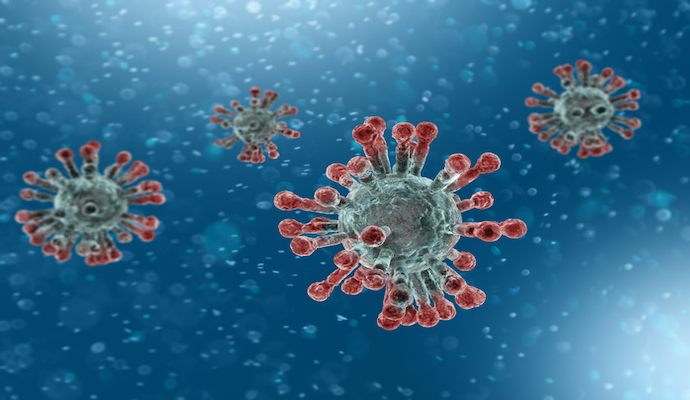J&J COVID-19 Vaccine Shows Promise in Preclinical Trial
Results from a preclinical trial show that Johnson and Johnson’s lead COVID-19 vaccine, Ad26.COV2.S, neutralized antibodies and prevented severe clinical disease in hamsters.

Source: Thinkstock
Overall, researchers uncovered that a single immunization of Ad26.COV.2.S showed improvement against severe clinical disease after high-dose SARS-CoV-2 challenge in hamsters.
Most importantly, mortalities were absent in vaccinated animals.
“This pre-clinical study further validates our confidence in our SARS-CoV-2 vaccine candidate,” Paul Stoffels, MD, vice chairman of the executive committee and chief scientific officer, Johnson & Johnson, said in the announcement.
“With our Phase 3 trials planned to start this month, we remain committed to expanding our manufacturing and distribution capabilities to enable global access to our SARS-CoV-2 vaccine candidate should it prove to be safe and effective in humans.”
The preclinical trials were conducted by researchers from Beth Israel Deaconess Medical Center (BIDMC) in collaboration with Janssen Pharmaceuticals, as part of its ongoing collaboration to accelerate the development of a COVID-19 vaccine.
Prior to this clinical study, Johnson and Johnson announced that Ad26.COV2.S protected against SARS-CoV-2 infection in an August preclinical study using monkeys.
The candidate had an immune response among rhesus macaques as demonstrated by the high levels of neutralizing antibodies to SARS-CoV-2, which prevented future infection and provided complete protection in the lungs from the virus in non-human primates, researchers said.
Specifically, there were RBD-specific binding antibodies in 31 of 32 vaccinated animals by the end of the second week and in all vaccinated animals by the fourth week. Robust neutralizing antibodies responses were also found after a single immunization, which provided complete protection against SARS-CoV-2 in five of six animals.
Dan Barouch, MD, PhD, director of the center for virology and vaccine research at BIDMC and the Ragon Institute, noted that the pre-clinical data suggests that antibody levels may serve as a biomarker for vaccine-medicated protection.
Johnson & Johnson first identified Ad26.COV2.S back in March through constructs the company had been working on months prior.The vaccine candidate was also discovered from the scaling of the company’s manufacturing capacity with the goal of providing a global supply of more than 1 billion doses of the vaccine.
Then in April, Johnson & Johnson expanded the manufacturing of Ad26.COV.2.S through its collaboration with Janssen and Emergent BioSolutions.
The partnership will allow for a significant boost and development of the promising vaccine to be distributed globally. Johnson & Johnson, along with HHS’ Biomedical Advanced Research and Development Authority (BARDA), will commit more than $1 billion in funding for vaccine research, development, and clinical testing of the vaccine candidate. The company hopes the monetary commitment and its manufacturing efforts will accelerate the development of a successful COVID-19 vaccine.
